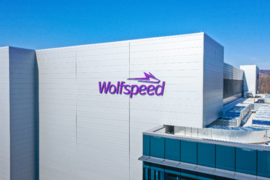
On Wednesday (October 23), American chip manufacturer Wolfspeed announced that it has shelved plans to establish a semiconductor factory in Ensdorf, Germany due to the slowdown in the popularity of electric vehicles.
Wolfspeed announced in June that it had postponed plans to build a $3 billion (currently around 21.349 billion RMB) factory and is still seeking funding, with construction not expected to begin until mid-2025 at the earliest. The factory will produce chips for electric vehicles in Germany, highlighting the difficulties faced by the EU in increasing semiconductor production and reducing dependence on Asian chips.
The demand for silicon carbide chips produced by this factory is largely driven by global electric vehicle applications, and it will also be used for industrial and energy applications.
Wolfspeed announced plans to establish factories and research and development centers in Germany in February 2023.
An industry insider revealed that German automotive supplier ZF intends to withdraw from a $3 billion microchip manufacturing project with Wolfspeed in western Germany. ZF originally planned to invest $185 million in the factory.
In addition, US chip manufacturer Intel announced last month that as part of its cost cutting plan, the construction of its factory in eastern Germany will be delayed by two years.
The suspension of Wolfspeed's factory construction plan will mean another setback for Germany's ambition to revive its industry.

